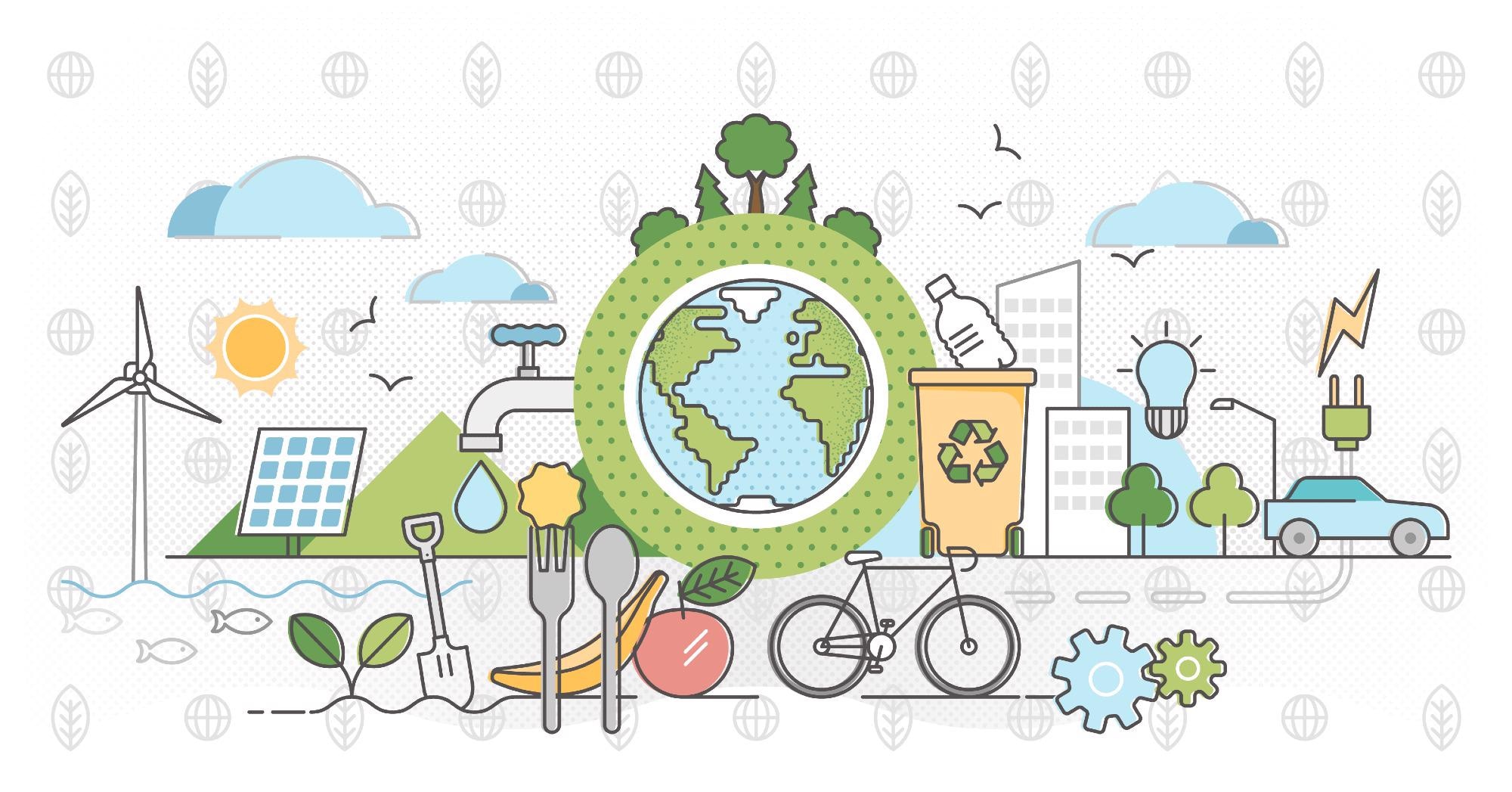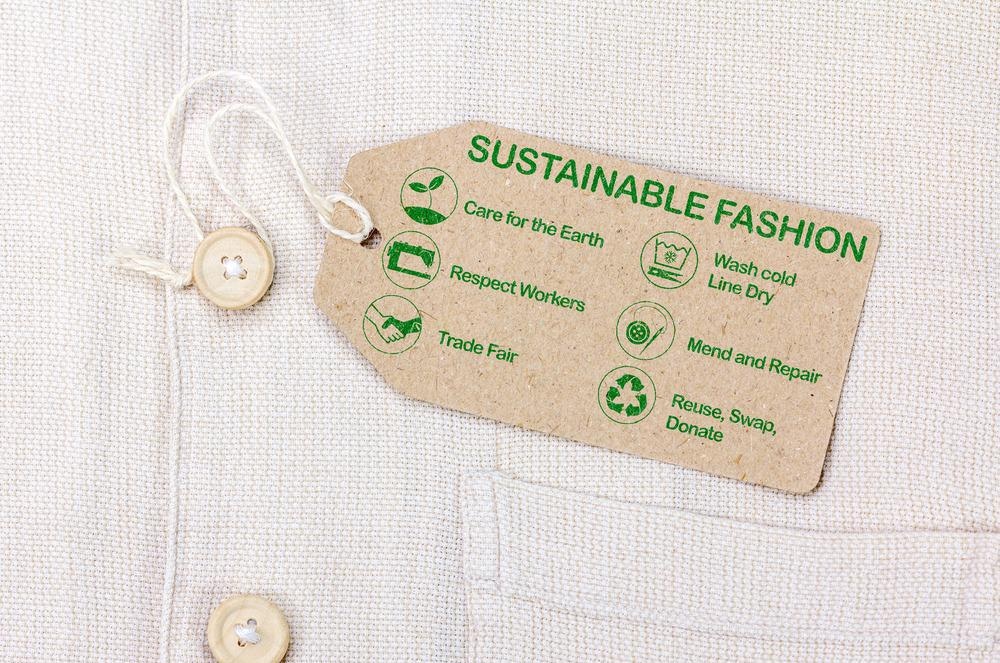Our planet only has finite resources to support life. In addition, Earth can only stand a small degree of greenhouse gas emissions before it becomes irreversibly damaged. In recent years, adopting sustainable lifestyles has been under the spotlight. To ensure that we do not over-consume the world's limited resources and do not plunge our planet into the doomed sequence of cataclysmic events that are predicted to ensue should we not reduce global emissions, there has been a significant focus on changing our lifestyles so that they are more sustainable.

Image Credit: VectorMine/Shutterstock.com
As a global community, we have become more aware of how our actions impact the planet and its future. Along with this awareness has come a greater sense of responsibility to change our behavior to minimize our impact on the Earth.
The WWF states that "the biggest driver of environmental degradation is the fact that we're consuming resources at an unsustainable rate" therefore, changing how we consume resources – living a greener life, is a vital strategy for tackling climate change.
Reducing plastic use
Plastic pollution is one of the biggest challenges our world faces. Plastic production continues to ramp up, rising from 234 million tonnes a year in 2000 to 460 million tonnes in 2019. Plastic never fully degrades. Over many years it slowly degrades into smaller and smaller pieces until the molecules of plastic reach the nanometer scale; this is when they're deemed microplastics.
Our oceans are full of an estimated 269,000 tonnes of microplastic per square mile. As a result, plastic is in our drinking water and the food we eat (fish). Many studies have shown the carcinogenic image of exposure to such microplastics, which, over time, get lodged in our organs.
To tackle this issue, we must take responsibility for our own plastic consumption. We can do this by choosing not to purchase single-use plastics and products that come in plastic packaging that cannot be recycled (plastic bags, coffee cups, cotton buds, plastic bottles, crisp and sweet wrappers, fast-food packaging)
Shops and services exist to help consumers purchase food products without plastic packaging. Oddbox in the UK, for example, rescues fruit and veg surplus or 'wonky' veg deemed too ugly for sale in supermarkets and sends it directly to consumers without plastic packaging (in most cases).
Sustainable clothing
The fashion industry uses roughly 93 billion cubic meters of water each year to produce clothing (the same as 37 million Olympic swimming pools). It is also a big consumer of plastic, with 69% produced from synthetic fibers such as polyester. Clothing also has a huge carbon footprint in transporting clothes from manufacturing sights to retailers and then from retailers to consumers (when purchased online).
There is pressure to move away from fast fashion to cut down on the water and plastic used in the fashion industry. It is better for the environment to purchase good quality pieces that will last for many years, to reduce the amount of clothing produced and purchased each year.
In addition, many sustainable brands are emerging on the market that produces clothes in less damaging ways to the environment. It is better to choose these brands over those that contribute to plastic production, water waste, and carbon emissions.

Image Credit: HollyHarry/Shutterstock.com
Water use
Water is essential for life on Earth. While we can recycle water, conserving it is important for keeping it pure and protecting the environment. We can make many small changes to the way we live that can help us drastically cut water consumption.
Each minute spent in the shower, for example, uses around 17 liters of water. Taking shorter showers, therefore, is one way of cutting water usage. Waiting until we have a full load of washing is more water and energy-efficient than running two half loads. Similarly, dishwashers should only be used when full. Even the way we cook our food can help us cut water usage; for example, steaming vegetables uses less water than boiling (and it also retains more vitamins and minerals).
Little changes make a big difference
While it can be challenging to live a 100% sustainable lifestyle, making little changes to a few daily behaviors can make a big difference. Things like spending a minute less in the shower each day, switching the brand we purchase our household items from, and running the washing machine less are all small changes that we can make over the year that adds up to a big difference in terms of reducing water wastage, plastic usage, energy consumption, and carbon footprint.
To secure a safe and prosperous future for our planet, it is important that we all consider how we can contribute to fostering more sustainable lifestyles across the globe.
Further Reading